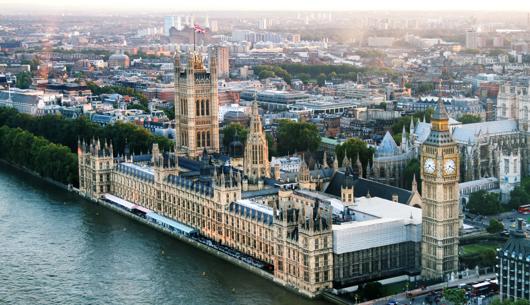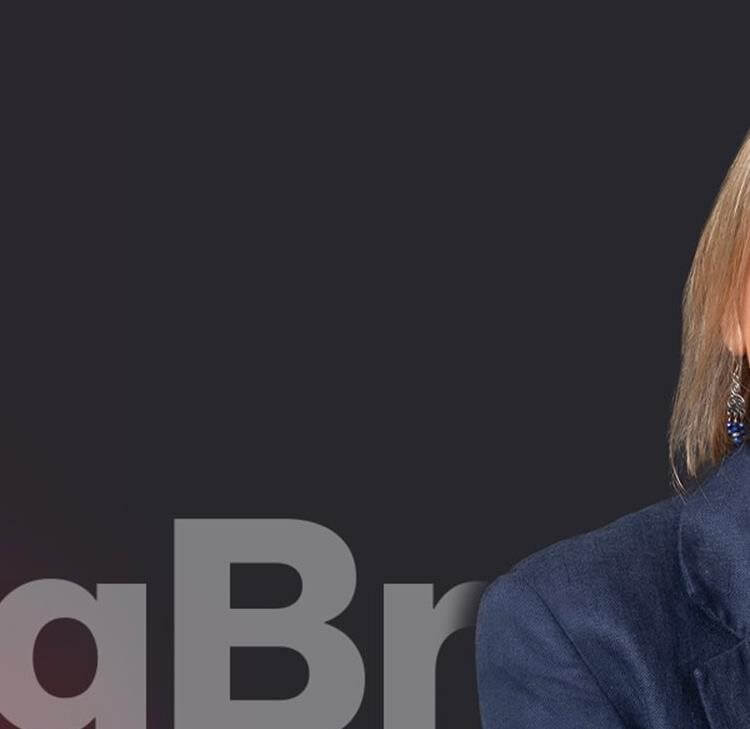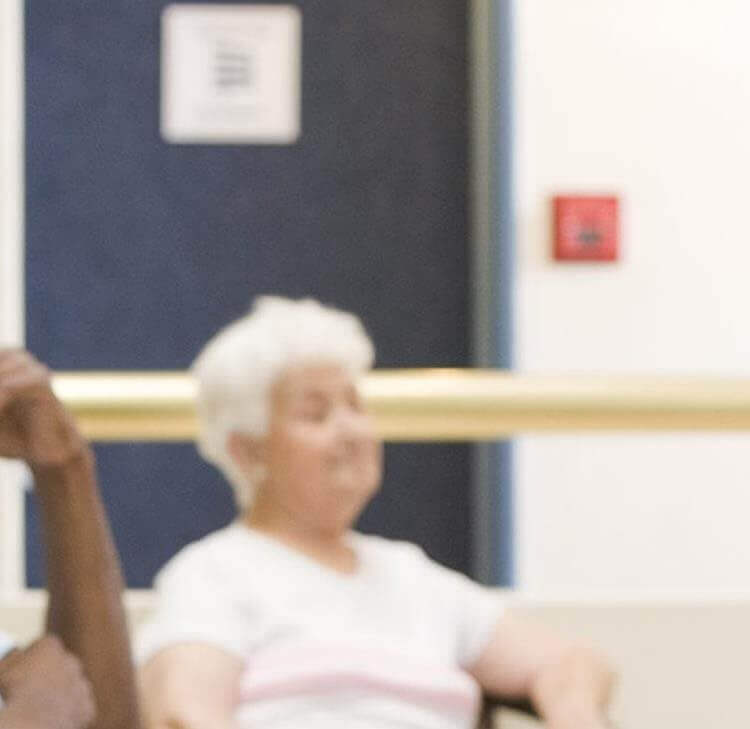
Rebecca Fitzpatrick
Partner
Manchester
rebecca.fitzpatrick@brownejacobson.com
+44 (0)330 045 2131
Becky heads our health advisory and inquests team. She’s recognised by Chambers and Partners as a pre-eminent lawyer in the areas of mental health and mental capacity law, with over 20 years of experience in the Court of Protection, the Mental Health Act, the High Court (complex treatment cases), the Administrative Court (judicial review, human rights and community care issues) and the Coroner's Court.
She sits as a fee-paid First-Tier Tribunal judge (mental health) and also regularly lectures in the above areas of law to a range of professionals including at national conferences in the field.
Becky advised the Department of Health in relation to their online training package on the Mental Capacity Act rolled out to over 1.5 million health and social staff, and is well known for her expertise in the area of consent, capacity and best interests.
Becky is regularly involved in high-profile, complex reported cases, such as the case of Devon Partnership NHS Trust v SSHSC [2021] EWHC 101 (Admin) concerning the legality of remote Mental Health Act assessments during the COVID 19 pandemic.
Expertise
Featured experience
Deprivation of Liberty of a child
Wigan BC v Y (Refusal to Authorise Deprivation of Liberty) [2021] EWHC 1982 (Fam) (14 July 2021) concerning the deprivation of liberty of a 12-year-old child with mental health issues.
End-of-life treatment of a child
Re Z (Medical Treatment: Invasive Ventilation) [2021] EWHC 2613 (Fam) (24 September 2021) which related to the end-of-life treatment of a child.
First case concerning the Mental Capacity Act to be heard by the Supreme Court
Advising the treating Trust in the first case concerning the Mental Capacity Act to be heard by the Supreme Court Aintree University Hospital Trust v J [2013] (withdrawal of medical treatment).
The legality of remote Mental Health Act assessments during the COVID 19 pandemic
Advising the mental health Trust in Devon Partnership NHS Trust v SSHSC [2021] EWHC 101 (Admin) concerning the legality of remote Mental Health Act assessments during the COVID 19 pandemic.
Testimonials
"Rebecca is very knowledgeable and sensible."
"Rebecca is a high profile practitioner in the space with good knowledge of cases."
"Becky is extremely approachable. She is also intuitive with regard to understanding the level of support required in each matter."
You may be interested in...
Press Release
Mental Health Act 2025 new provisions come into effect: Legal comment
Legal Update - Mental Health Act 2025
The Mental Health Act 2025: Provisions coming into force in February 2026
Legal Update - Mental Health Act 2025
Mental Health Bill receives royal assent
Press Release - Mental Health Act 2025
Mental Health Act 2025: Legal comment as Bill receives royal assent
On-Demand - Shared Insights
Shared insights: Managing children with complex needs in crisis
Legal Update - Mental Health Act 2025
Frequently asked questions about the new Mental Health Bill
Legal Update
The Assisted Dying Bill: What health and social care professionals need to know
Legal Update
The Government’s 10-Year Health Plan: What’s in it for mental health?
Legal Update
Trans matters in health for trusts and acute settings: The decision in For Women Scotland
Opinion
High Court declares it lawful for a mental health trust not to impose treatment on a detained patient
On-Demand - Shared Insights
Shared Insights: Complex medical treatment decisions for patients with mental disorder
On-Demand - Shared Insights
Browne Jacobson submits recommendations and proposals to the government for England’s 10 Year Health Plan
Opinion - Mental Health Act 2025
New Mental Health Bill to be introduced in Parliament
Legal Update - Mental Health Act 2025
UK government announces new Mental Health Bill to modernise the Mental Health Act 1983
Legal Update
Labour’s mental health care plans: What to expect under the new government
Opinion
Inquiry into the coroner service halted – so what next?
Legal Update - Mental Health Act 2025
Government response to the recommendations regarding the draft Mental Health Bill
Legal Update
Mental health law round up – February 2024
Press Release - #BeingBrowneJacobson
Making a difference: Working in mental health and mental capacity law
Legal Update
Jurisdiction of the First-tier Mental Health Tribunal in the context of remote assessments under the Mental Health Act: recent developments
Legal Update
Section 117 after-care services: Who should pay?
Legal Update
Inquests and Article 2 of the ECHR: A practical guide following the case of Maguire
Legal Update
Learning from Reports to Prevent Future Deaths in Mental Health settings - A Review of PFDs nationally 2022-2023
Legal Update
Navigating the complexities of detention: insights from a recent Mental Health Act / Mental Capacity Act interface case
Legal Update
Restricting a patient’s use of their mobile phone – is it lawful?
Legal Update
The Liberty Protection Safeguards – how can we help?
The Liberty Protection Safeguards (LPS) were introduced in the Mental Capacity (Amendment) Act 2019 and will replace the Deprivation of Liberty Safeguards (DoLS) system. The LPS framework aims to deliver improved outcomes for people who are or who need to be deprived of their liberty.
On-Demand
LPS - it's out - what do you need to know? Part 2: the most significant changes
This on-demand session considers some of the most significant changes to the Code.Press Release
Browne Jacobson lawyer and social mobility ambassador celebrates after winning Neurodiversity Community Choice Award
Lynette Wieland, a neurodivergent health and social care advisory and inquests lawyer at Browne Jacobson, and a social mobility ambassador for The Law Society has won the Community Choice Award at this year’s In Genius Celebrating Neurodiversity Awards.
On-Demand - Shared Insights
Shared Insights: Mental Health Units (Use of Force) Act: What does it mean for hospitals in the mental health and acute sector?
On-Demand - Shared Insights
Shared Insights: Mental Health in Maternity
On-Demand
Mental Health and Court of Protection Legal Update webinar
Watch now on-demand our Mental Health and Court of Protection Legal Update webinar, there have been some interesting recent legal developments in this area and topics that were covered during the session.
Legal Update
What to expect at Court: Family Court and Care Proceedings
What to expect at Court: Family Court and Care Proceedings. Care Proceedings concern the welfare of a child. If a Local Authority believes that a child is at risk of significant harm, they can seek permission from the Court to take appropriate action to protect the child.
Legal Update
Potential criminal offence for care workers to assist people with mental disorders in securing the services of sex workers
In circumstances where it is subsequently proved that an individual does have such a mental disorder, there is a presumption that their carer either knew or could reasonably have been expected to know of the disorder, unless sufficient evidence is adduced to rebut that presumption.
On-Demand - Shared Insights
Shared Insights: Managing violent, abusive and racist patients
On-Demand - Shared Insights
Shared Insights: Quarterly safeguarding forum - challenging families and best interests
On-Demand
Care Business Briefing - Future of Care Special
Catch up on our on-demand video where our Health specialists talked about the Future of Care with discussions about social care in an ICS world, the future of mental health and learning disability and retirement living.
On-Demand
Mental Health Act and Legal Update
In this on-demand video, we covered The MHA white paper, The Mental Health (Hospital, Guardianship and Treatment) (England) (Amendment) Regulations 2020 and Devon Partnership NHS Trust v SSHSC [2021] EWHC 101 (Admin).
On-Demand - Shared Insights
Shared Insights: Managing complex patients
On-Demand
Managing the Mental Health Act during the Covid-19 Pandemic
Following concerns being raised nationally about the impact of the pandemic on certain aspects of assessing and treating patients detained under the Mental Health Act 1983, “Legal guidance for mental health, learning disability and autism, and specialised commissioning services supporting people of all ages during the coronavirus pandemic” was published on 19 May 2020.
On-Demand
Patients' rights during Covid-19
We have received a number of queries from our health and social care organisational clients regarding specific rights of social and healthcare patients they are treating and caring for during the COVID-19 Pandemic. We therefore thought it would be of assistance to provide another free webinar exploring these issues and answering commonly raised questions.
























